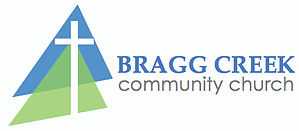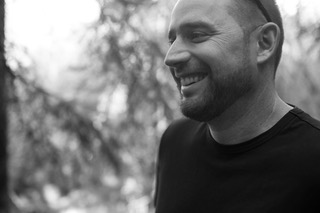When The Church Goes To Us
It is a double edged sword that it tends to be almost second nature to be introverted out in these quiet neighbourhoods of forest. Our family moved from the increasingly-crowded Niagara Region in southern Ontario to West Bragg Creek a little over two years ago.
We love the quiet and being able to keep to ourselves and have some privacy in our own yards, yet still actually know our neighbours and run into them in town, at school, work, and church (and sometimes our bosses ARE IN our church families, I mean, so I’ve heard).
Once the snow settles in and the draw to stay in by the fire lures, we tend to become semi-hermits. This is when you lose a bit of perspective. Small inconveniences become insults to our very being. There’s nothing like isolation for making you think you are the centre of the universe. Extended withdrawal from our community deprives us of the joy of knowing someone else can relate to us, and robs others of the gifts we bring to the table relationally, among other drawbacks that a seasoned anthropologist could expand on, I’m sure. There’s no hand on our shoulder with quiet, even wordless, empathy when we are alone. Shame can win battles in silent isolation. There’s no opportunity for someone to come alongside and say “I’ve been there, keep going, I’m here to help and cheer you on.” So are we hiding because we are afraid of being seen, or are we hiding because we don’t know how to lovingly see people without fear of being awkward or having to give of our own time and energy? There’s a God big enough for both of those dilemmas.
We can build a table instead of a soapbox, a bench instead of a fence. Maybe you wear yourself out volunteering because you don’t want to disappoint people and you feel like you have to make up for the things you lack. Maybe you’re afraid to stop nitpicking your neighbour because it means giving up some control and letting go your sense of rightful entitlement. Maybe you never wander your street or greet your neighbours because you’re afraid of saying the wrong thing or feel that you’ve waited too long and now it’s awkward.
Even if God is not on your radar, whatever your beliefs, the same themes of the value of loving your neighbour and working for good relationships apply, and can make or break your own happiness in a community.
I forget that the people in my community from which arise any conflict or perceived slight I’m complaining about need just as much grace and forgiveness as I would expect if I was in the same situation. They are of the same value as I am, they aren’t enemies on an evil mission to make my life difficult. People make mistakes. If people are mean on purpose, it usually means they need love even more than a well-adjusted soul would. It does not cost me anything to give the benefit of the doubt and to forgive and let go. However, it costs me my peace of mind and sometimes my sanity not to.
It should be noted, forgiveness is NOT the same as excusing a wrongdoing or downplaying its impact, or ignoring the practical consequences, or forcing trust again. It’s simply not letting anger over what happened turn into bitterness, deciding that we aren’t going to let what the person did control us or give them free rent in our emotions.
When we as a church have considered these questions of what it means to be a true neighbour, it has made me aware that there’s somewhat of a blessing in being a semi-nomadic church. Our small collection of people gathered simply to Jesus doesn’t have an address we own. We rent space at the community centre every Sunday, and a nook for meetings and outreaches in the shopping centre, but we don’t yet have a place that bears just our name and roots in a permanent sense. In some ways, it’s a constant, gentle reminder that we don’t truly gather to a place anyway, we gather to Jesus. We have to depend on our landlords, and we in turn support them and the community.
If you look at how the word “church” is used in the Bible, you’ll find it doesn’t actually refer to a physical place at all, but to the normal, everyday people who lived in a certain place that had thrown their lives into Jesus’ hands to save and make them new. They then met together regularly to remember Jesus’ death and resurrection, pray for each other and their cities, teach and understand the word of God and how to apply it to everyday life, and (probably around pita and olive casserole potlucks) get to know each other and find out how they could serve each other and the communities they belonged to geographically in the every day lives they had. (Acts 2:42)
In light of seeing church as people not place, Pastor Dave has been leading us this year to consider what it means to live UP: Knowing God, IN: Loving Each Other and OUT: Blessing The World. His suggestion was that we all read a copy of the book Saturate by Jeff Vanderstelt. Vanderstelt explains what exactly it means to be a disciple of Jesus and how that can saturate the communities we live in with true, fearless, sacrificial love that doesn’t preach, but LIVES and actually gets hands dirty and costs real money and actual time and awkwardness, and involves actually knowing and caring about the people around us. We don’t go to church, we ARE the church, sent to go out to serve the communities we are in.
So as our own church family seeks to be intentional about creating and supporting community in practical ways, we want to also note that this isn’t some standard we have to get to in order to be a “good Christian”. The good we do, only possible because we let Jesus work through us as people who have put our faith in Him, is done to show our love for Him, and for the people He has put in our lives.
It’s not about creating a moral culture or imposing beliefs, it’s simply about sharing about our relationship with God. We plant one seed of love or faith or hope at a time, praying that we will get to see it bloom in our community and our families in God’s wildly creative ways.
Anna Grist,
serendipimoose@gmail.com
serendipimoosetracks.weebly.com























